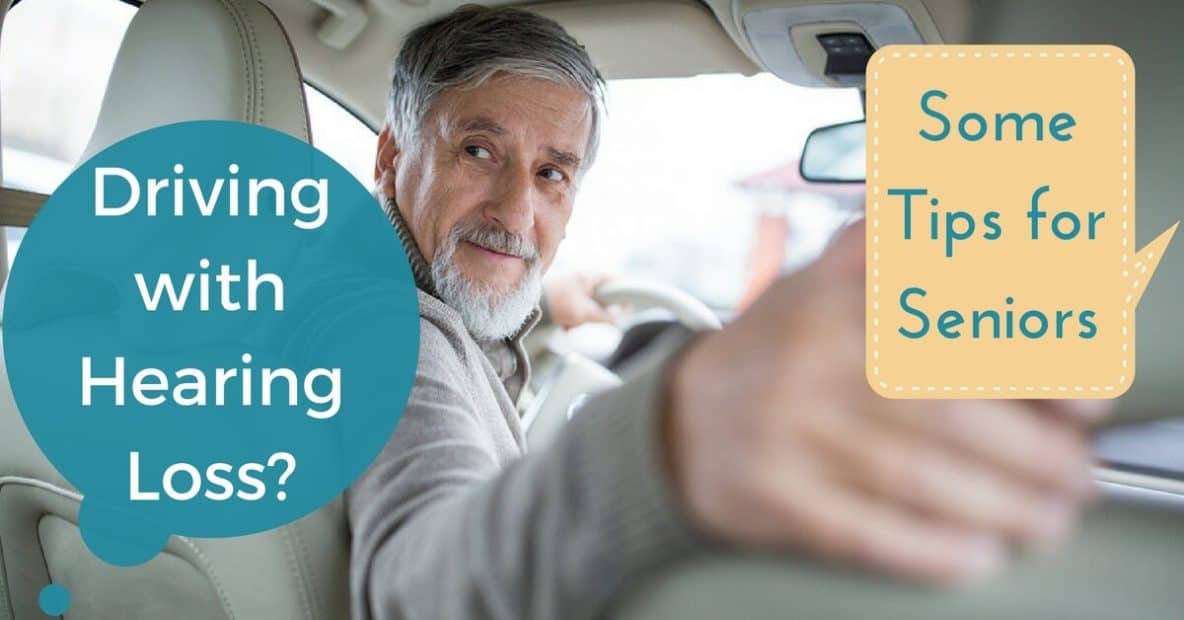0% financing available. Up to 3-year loss and damage guarantee.

Driving with Hearing Loss? Some Tips for Seniors
- Navigating the Conversation: The Significance of Thoughtful Disclosure in Hearing Loss - December 10, 2023
- The Sound of Dreams: Understanding How Hearing Loss Impacts Dreaming - November 7, 2023
- Traveling Effectively with Hearing Aids - October 16, 2023
In these winter months, driving can be a challenge, no matter your age. However, if you’re an older American, age 65 or older, you may have a more difficult time with driving. Hearing loss can play a part in this.
One in three Americans age 65 and older experience some degree of hearing loss, while 50% of people over the age of 75 experience some degree of it. If you’re an older American, it’s important to get your hearing tested. If you have parents or grandparents in this age range whose hearing abilities have been changing, it’s important to encourage them to take a hearing test.
The good news is that hearing loss is easily treated with hearing aids. And with so many older Americans leading active lives, hearing aid design has become more streamlined, with advanced features for different environments. Some hearing aids include features that assist with listening in cars. Below we offer some driving tips for older Americans with hearing loss.
Maximize Your Vision
You know the pop-science saying about how some of your senses will sharpen if one dulls? Well, it’s important to maximize your sense of sight if you are experiencing hearing loss. No matter your vision abilities, it’s important to get an eye exam annually. This way, you’ll be able to keep track of your eyesight and get contacts or glasses if necessary.
Another element of vision has to do with day and night. During the day, the sun can be awfully strong and could interfere with your ability to see the road clearly. Invest in a good pair of sunglasses that block out the harsh sunlight. During nighttime, make sure that you’ve got good visibility with your headlights. Eyesight is especially important during the darkness of night, as it allows you to differentiate when light is low. That’s another reason to have your vision tested annually!
Get Your Hearing Checked Annually
Annual hearing tests are recommended for people age 50 and older. Even if you do not experience a hearing loss, an annual hearing test ensures that your hearing abilities are closely monitored. If there are changes as you age, your hearing specialist will be able to catch this early. Untreated hearing loss brings many negative effects – not to mention how unsafe it makes driving!
If you wear hearing aids to treat your hearing loss, make sure they’re up to date. Ask us at Advanced Tech Hearing about different features available for your hearing aids. There are Bluetooth options to enable hands-free phone conversations while driving. Hearing aids also offer features to clarify speech and directionality in a moving vehicle.
When in the car, it’s important for you to focus – so keep the noise level at a minimum! Try not to listen to loud music or have long phone conversations.
Make Adjustments for Physical Changes
Reaction time is a major part of driving. You want to be ready in case someone runs into the road, or if a car in front of you stops suddenly. Reaction time can be improved if you stay physically active and exercise – this helps your reflexes!
Sometimes, you may not hear emergency vehicle sirens as they come from behind. Keep alert for any flashing lights approaching so you can move out of the way.
Check Your Medications
Some medications make you drowsy or dizzy. If you are on medications, make sure you know the side-effects and check in with your doctor if you are unsure. Additionally, some medications may lead to hearing loss. If you’ve noticed changes in your hearing abilities since taking new medication, check in with your doctor, and with us at Advanced Tech Hearing.
We’re here to support you! If you have any questions about your hearing aids or if you want to schedule a hearing test, contact us at Advanced Tech Hearing today.
Advanced Tech Hearing Aid Centers
Advanced Tech Hearing Aid Centers have three convenient locations in Lancaster, New Holland, and Red Lion. Reach out to us today.
(717) 560-5023
